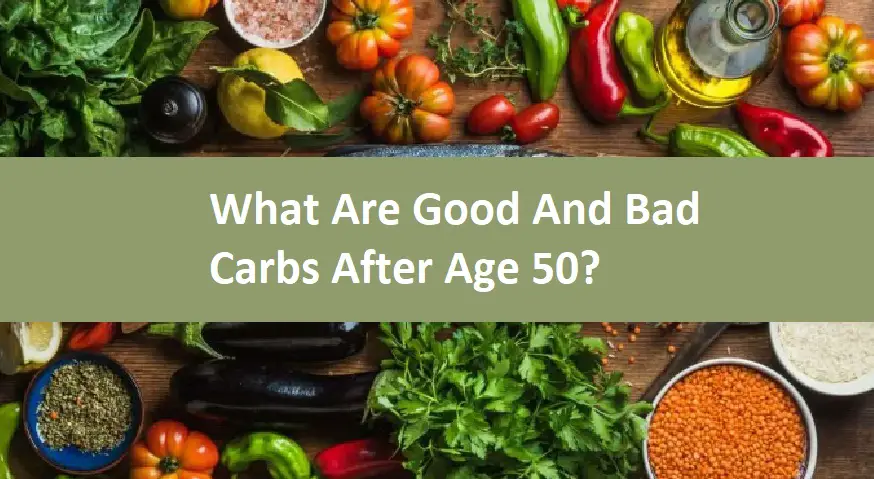In this article, we will explore the importance of a healthy diet for seniors and provide tips for creating a balanced diet that meets their unique nutritional needs.
We will discuss the benefits of consuming nutrient-dense foods, limiting processed and refined foods, staying hydrated, including sources of protein and healthy fats and being mindful of calorie intake.
Keep reading to learn more!
What Are Good Carbs for Seniors?
As we age, our bodies go through several changes, including a decrease in muscle mass and a decrease in metabolic rate. As a result, seniors need to pay special attention to their diet and ensure they are consuming adequate nutrients to support their health and well-being.
When it comes to carbohydrates, it’s important to choose the right ones, as some carbs are better for seniors than others. Here are some good carb choices for seniors:
- Whole grains: Whole grains such as brown rice, quinoa, whole wheat bread, and oatmeal are excellent sources of complex carbohydrates, fiber, and other essential nutrients that can help seniors maintain healthy blood sugar levels and reduce the risk of heart disease.
- Fruits: Fruits like berries, apples, oranges, and bananas are packed with natural sugars, vitamins, and fiber that can provide seniors with a sustained source of energy.
- Vegetables: Vegetables such as sweet potatoes, beets, carrots, and squash are good sources of carbohydrates that are packed with nutrients, including vitamins A and C, fiber, and antioxidants.
- Legumes: Legumes such as lentils, chickpeas, and kidney beans are excellent sources of complex carbohydrates, fiber, and protein, making them a great addition to any senior’s diet.
- Dairy: Dairy products like milk and yogurt are excellent sources of carbohydrates, protein, and calcium, which are essential for maintaining healthy bones and muscle mass.
It’s important to note that not all carbs are created equal, and seniors should avoid processed and refined carbohydrates found in foods such as white bread, pasta, and pastries. These foods can cause blood sugar spikes and contribute to inflammation and other health problems.
Instead, seniors should focus on eating a balanced diet that includes a variety of nutrient-dense carbohydrates, proteins, and healthy fats.
What Are the Worst Carbs for Seniors?
Seniors need to be mindful of their carbohydrate intake, especially those high in sugar and refined carbohydrates. Here are some of the worst carbs for seniors:
- Sugary drinks: Sugary drinks such as soda, fruit juice, sweetened tea, and coffee can contribute to weight gain and increase the risk of diabetes and heart disease.
- White bread and pasta: Refined carbohydrates found in white bread, pasta, and other baked goods have little nutritional value and can cause blood sugar spikes and inflammation.
- Candy and sweets: Candy, cookies, and other sweets are high in sugar and calories and offer little nutritional value.
- Processed snacks: Processed snacks like chips, crackers, and pretzels are often high in refined carbohydrates, sodium, and unhealthy fats, making them a poor choice for seniors.
- Alcohol: Alcohol is high in calories and can contribute to weight gain, dehydration, and other health problems, especially when consumed in excess.
It’s important for seniors to limit their intake of these types of carbohydrates and focus on eating a balanced diet that includes nutrient-dense carbohydrates, protein, and healthy fats.
Seniors should also speak to their healthcare provider or a registered dietitian to develop a personalized nutrition plan that meets their individual needs and health goals.
Carbohydrates Health Risk
Carbohydrates are an essential macronutrient that provides the body with energy. However, consuming too many carbohydrates, especially refined carbohydrates, and sugar, can lead to health risks, including:
- Weight gain: Consuming too many carbohydrates can lead to weight gain, especially if they come from high-calorie and high-sugar foods.
- Increased risk of diabetes: Diets high in refined carbohydrates and sugar can cause spikes in blood sugar levels, leading to insulin resistance and an increased risk of developing type 2 diabetes.
- Heart disease: Diets high in refined carbohydrates and sugar have been linked to an increased risk of heart disease.
- Inflammation: Refined carbohydrates and sugar can cause inflammation in the body, leading to chronic health conditions such as arthritis, autoimmune diseases, and cancer.
- Poor dental health: Consuming high amounts of sugar and refined carbohydrates can lead to tooth decay and gum disease.
It’s important to note that not all carbohydrates are created equal, and complex carbohydrates such as whole grains, fruits, and vegetables are essential for maintaining good health.
Seniors and other individuals should focus on consuming a balanced diet that includes a variety of nutrient-dense carbohydrates, protein, and healthy fats.
How Many Calories Does a Senior Need a Day?
The number of calories a senior needs per day depends on various factors, including age, gender, height, weight, and activity level.
As we age, our metabolism slows down, and we tend to lose muscle mass, which can impact our caloric needs.
However, generally speaking, seniors require fewer calories than younger adults.
According to the Dietary Guidelines for Americans, the following daily calorie intake recommendations are appropriate for sedentary seniors:
- Sedentary women over 50: 1600-1800 calories
- Sedentary men over 50: 2000-2200 calories
However, seniors who are more active or have a higher muscle mass may require more calories. Seniors who are trying to lose weight or have certain health conditions may also need to adjust their calorie intake accordingly.
Healthy Diet for Seniors
Here are some tips for a healthy diet for seniors:
- Focus on nutrient-dense foods: Seniors should prioritize nutrient-dense foods such as fruits, vegetables, whole grains, lean proteins, and healthy fats. These foods provide the body with essential vitamins, minerals, and nutrients needed to maintain good health.
- Limit processed and refined foods: Processed and refined foods, such as white bread, sugary drinks, and processed snacks, can contribute to weight gain, inflammation, and other health problems. Seniors should limit their intake of these foods and opt for whole, unprocessed foods whenever possible.
- Stay hydrated: Seniors may be at a higher risk for dehydration, so it’s important to drink enough water and other fluids throughout the day. Drinking water can also help with digestion and nutrient absorption.
- Include sources of protein: Seniors need adequate protein to maintain muscle mass and prevent muscle loss. Good sources of protein include lean meats, poultry, fish, beans, legumes, and nuts.
- Choose healthy fats: Seniors should opt for healthy fats, such as those found in olive oil, avocado, nuts, and fatty fish. These fats can help support heart health and cognitive function.
- Be mindful of calorie intake: As we age, our metabolism slows down, and we tend to need fewer calories. Seniors should be mindful of their calorie intake and adjust their diet accordingly.
- Speak to a healthcare provider or registered dietitian: Seniors may have unique nutritional needs or health conditions that require a personalized nutrition plan. It’s important to speak to a healthcare provider or registered dietitian to develop a plan that meets their individual needs.
Overall, a healthy diet for seniors should be focused on nutrient-dense foods, limited processed and refined foods, and include adequate protein and healthy fats while staying mindful of calorie intake and staying hydrated.
Find Out Where to Buy Healthy Food With Senior Discounts
There are many grocery stores and markets that offer senior discounts on healthy foods. Here are some options:
| Kroger | Kroger offers a senior discount program for shoppers aged 60 and older. The program provides a 5% discount on every purchase, including healthy foods such as fresh produce, lean meats, and whole grains. |
| Publix | Publix offers a senior discount program for shoppers aged 60 and older. The program provides a 5% discount on every purchase, including healthy foods such as fresh produce, lean meats, and whole grains. |
| Whole Foods Market | Whole Foods Market offers a senior discount program for shoppers aged 60 and older. The program provides a 10% discount on every purchase, including healthy foods such as organic produce, lean meats, and whole grains. |
When shopping for healthy food with senior discounts, be sure to bring a valid ID to prove your age and eligibility.
Conclusion
It’s important to prioritize our health and well-being by consuming a healthy and balanced diet.
Seniors should focus on nutrient-dense foods, limit processed and refined foods, stay hydrated, including sources of protein and healthy fats, be mindful of calorie intake, and speak to a healthcare provider or registered dietitian to develop a personalized nutrition plan.
Additionally, there are many grocery stores and markets that offer senior discounts on healthy foods, making it easier and more affordable for seniors to maintain a healthy diet.
By making small changes to our diet and lifestyle, we can support our health and well-being as we age.

Morgan Elfman is a compassionate writer, dedicated caregiver, and passionate advocate for senior well-being. Born and raised with a deep sense of empathy and a natural inclination towards service, Morgan has devoted her life to making a positive impact on the lives of seniors.
As a writer for www.choiceseniorlife.com, Morgan utilizes his skills to create insightful and informative content that addresses the unique needs and challenges faced by seniors and their families. Her articles not only provide valuable information on health, lifestyle, and care options but also strive to inspire and empower seniors to lead fulfilling lives.
